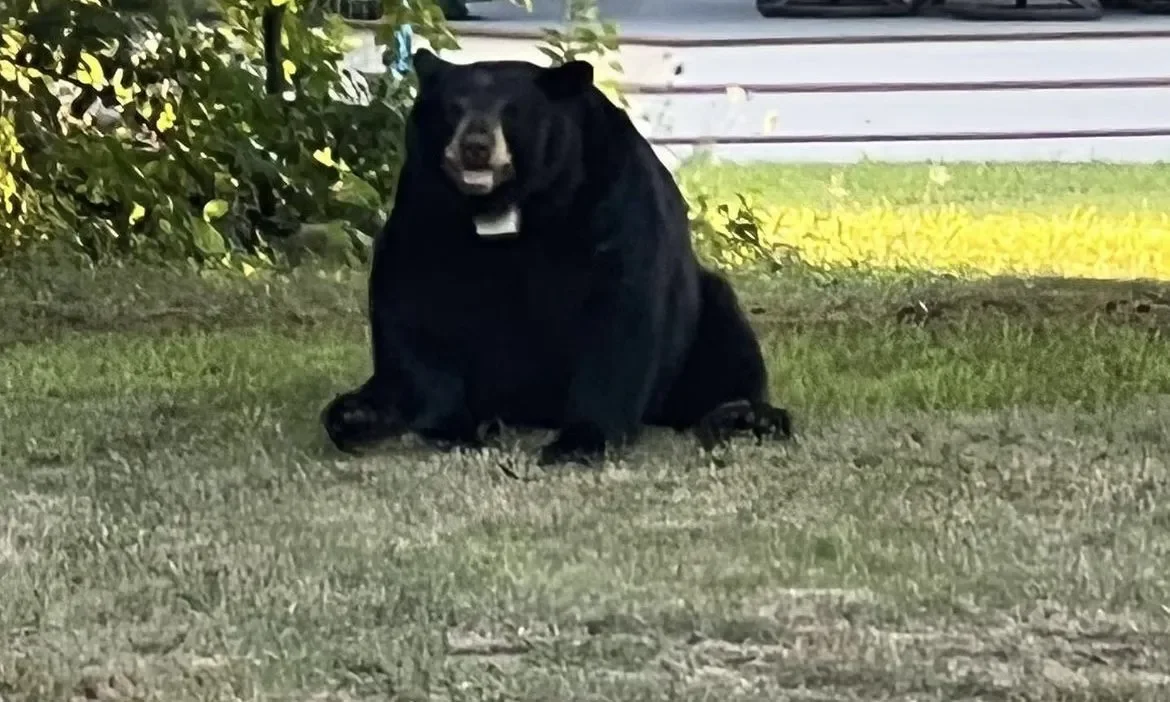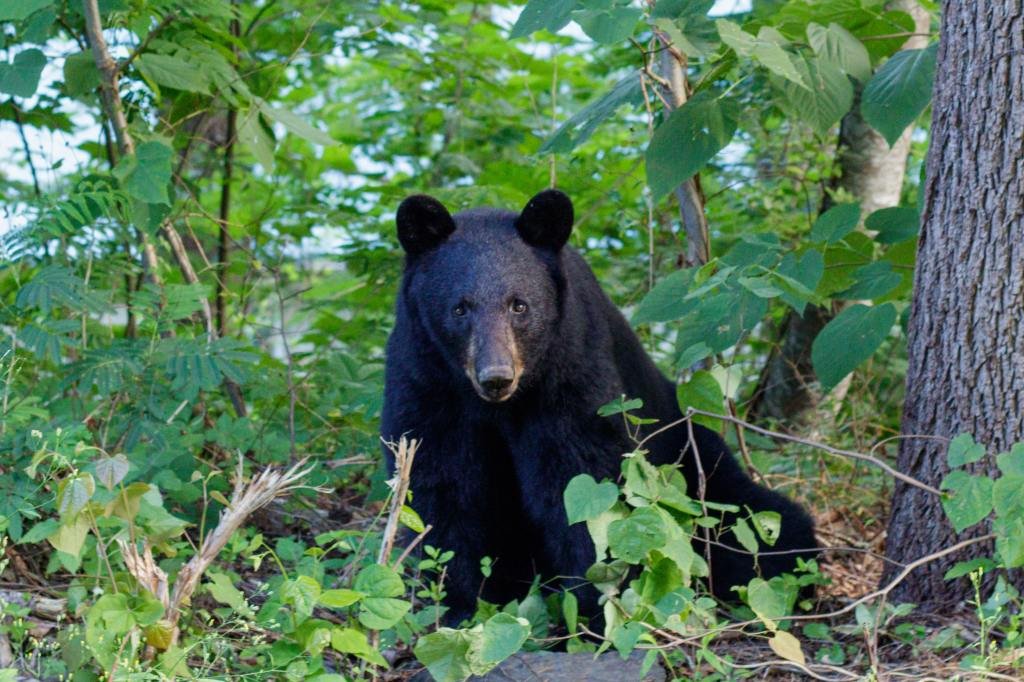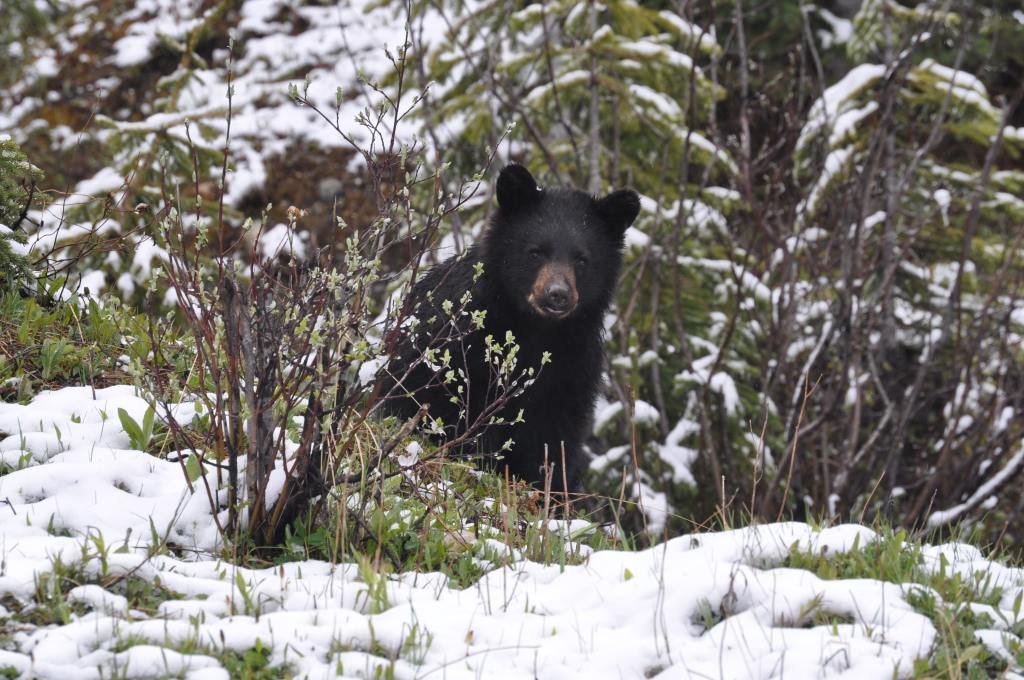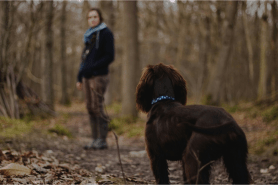

On December 30, 2022, Vincent Dashukewich was playing with his dog in his backyard when his 3-year-old pitbull suddenly became fixated on something beneath the back deck. Dashukewich peered under the porch—and discovered an enormous male black bear curled beneath, hibernating.
In a video that’s since gone viral, the bear (now named Marty) turns and blinks up at the camera, bleary-eyed, sluggish, and perhaps a little disoriented from being woken up from his nap.
Unlike many other animals that sleep through the winter to conserve energy, black bears don’t go into a true state of hibernation. Instead, they drop into a state of “torpor,” which is more similar to regular deep sleep. Their heart rate slows and their energy needs drop dramatically, but they still stir from time to time and can be woken up. In this case, Marty woke up, but that doesn’t necessarily mean his hibernation had been critically interrupted.
Still, concerned for the bear’s welfare, Dashukewich contacted the Connecticut Department of Energy and Environmental Protection (DEEP). DEEP representatives told him he could either try to scare the bear out from under the deck with bright lights and loud noises—or let him stay.
Since the bear wasn’t bothering anyone, the Dashukewich family decided to leave Marty where he is. They’ve stopped taking the dog into the backyard, and they’re keeping their distance—both for their safety and for Marty’s.

Black bear populations have rebounded in Connecticut over the past few decades, which has meant more human-bear interactions. In recent years, DEEP has gotten between 10 and 20 reports per winter about bears hibernating under decks and other structures.
Left alone, the bears usually don’t cause any trouble; unlike grizzly bears, black bears tend to be relatively docile. It’s only when the bears are bothered and become acclimated to humans that they become an issue. Bears that are too comfortable with humans venture into town more often, raiding garbage cans and making themselves a nuisance. This endangers humans and pets, and puts problem bears at risk. Repeat offenders are relocated. If relocation doesn’t work, they sometimes have to be put down.

For that reason, most wildlife experts recommend that humans leave bears alone whenever possible. If you live in a bear-prone area, lock up garbage cans, remove bird feeders and pet food, and report any unusual bear behavior to the authorities. But if you find one sleeping under your back porch? Let the bear stay, authorities say. When they wake up for good around April, they should move on of their own accord—and go back to minding their own business.









